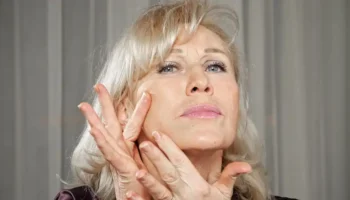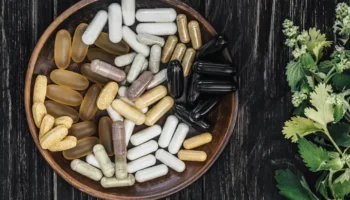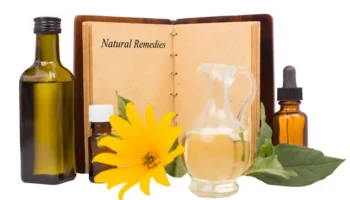As a woman navigating the rollercoaster of premenopause, I’ve found myself deep in conversations—both with friends and online menopause support groups—about the challenges we face. One topic that keeps coming up? Changes in sexual desire. So many women talk about how hormonal shifts can impact intimacy, and while the topic might feel taboo, it’s one we need to address openly.
The truth is, as hormones fluctuate during premenopause, many women experience shifts in libido. In fact, up to 40-50% of women lose interest in sex during menopause, often due to a combination of physical, emotional, and hormonal factors. Yet, so many of us feel hesitant to seek help. Let’s explore what’s happening, why it matters, and how we can reclaim our intimacy.
Why Hormonal Changes Affect Your Libido
During premenopause and menopause, levels of oestrogen and testosterone naturally decline. Oestrogen plays a key role in maintaining vaginal health, and its drop can lead to vaginal dryness, discomfort during intimacy, and even thinning of vaginal walls (called vaginal atrophy). Testosterone, often associated with sex drive, also dips during this time.
Science backs up these changes:
- Lower oestrogen levels decrease blood flow to genital tissues, affecting arousal.
- Drops in testosterone contribute to a lack of energy and lower libido.
- Increased stress and higher cortisol levels during this transition suppress reproductive hormones, further dampening desire.
Adding to this, factors like night sweats, caregiving responsibilities, and even body-image concerns can take a toll. It’s a complex mix, but one thing is clear: you’re not alone, and solutions are available.
Understanding Low Libido in Women: Facts You Should Know
It’s no secret that low libido in women is a common concern during hormonal transitions. Surveys reveal:
- 50% of women experience vaginal dryness, leading to discomfort during intimacy.
- Up to 60% report a drop in desire during menopause, but 70% never seek help—even though treatments work!
- Stress and lifestyle changes play a big role, with 30% of women noting that exercise and diet improvements can help reignite their drive.
Treatments and solutions for low libido can vary based on where you live. For example, in the UK, options like testosterone therapy are rarely prescribed to women due to NHS guidelines, and accessing off-label treatments often requires seeing a private specialist. On the other hand, women in the USA may have access to FDA-approved testosterone treatments, as well as medications like flibanserin (Addyi) and bremelanotide (Vyleesi), specifically designed to address low sexual desire. Despite these options, awareness and accessibility remain challenges in many places.
Medical and Natural Solutions to Reignite Your Drive
Reclaiming intimacy during premenopause requires a mix of science-backed solutions and lifestyle changes. While treatment availability and approaches vary across countries, there are effective options to explore:
1. Medical Interventions
- Oestrogen creams or patches: These can help ease vaginal dryness and discomfort, with 75% of women finding relief.
- SERMs (Selective Oestrogen Receptor Modulators): Available in many countries, these improve vaginal health and increase libido for some women.
- Testosterone therapy: In some places, like the UK, testosterone therapy is rarely prescribed to women due to NHS guidelines. However, it’s available off-label through private specialists. In other countries, like the USA, FDA-approved testosterone treatments for women are more widely used, along with medications such as flibanserin (Addyi) and bremelanotide (Vyleesi), which are specifically designed to address low sexual desire.
Treatment options often depend on healthcare regulations and cultural attitudes toward menopause. It’s essential to understand what’s available in your country and seek professional guidance.
2. Lifestyle Changes
- Exercise: Regular activity boosts blood flow, balances hormones, and improves overall mood. Studies show active women are 50% more likely to report increased libido.
- Stress management: Practices like yoga, mindfulness, or even deep breathing can help lower cortisol levels, making it easier to focus on intimacy.
- Diet: Adding phytoestrogen-rich foods like soy and flaxseeds may help balance hormones, while omega-3s support overall health.
For women in countries like the USA, supplements such as maca root or tribulus are marketed as libido boosters, but the evidence is mixed. Regardless of location, consulting a healthcare provider before trying supplements is key.
Embracing Intimacy Beyond the Physical
Sometimes, intimacy doesn’t have to be about sex. Drive-by sex—quick, unplanned moments of connection—can work wonders for maintaining closeness during busy or challenging times. Likewise, exploring new forms of intimacy, like sensual massages or sharing hobbies, can strengthen emotional bonds when physical changes feel overwhelming.
Communication Is Key
Open conversations with your partner are essential. Studies show that 60% of couples improve their intimacy when they talk honestly about their needs and concerns. Try:
- Setting aside time for regular check-ins.
- Using non-blaming language, like “I feel” instead of “You always.”
- Exploring preferences for touch and connection that go beyond sex.
Taking the First Step
If premenopause symptoms are making intimacy feel out of reach, don’t hesitate to seek help. Persistent issues like vaginal dryness, fatigue, or low libido in women aren’t something you need to endure in silence.
For women in the UK, starting with your GP or exploring private specialists may provide options like hormone replacement therapy (HRT). For women in the USA, talking to an OB-GYN or menopause specialist might lead to prescriptions for medications like flibanserin or hormone-based therapies.
Rediscovering Your Sexual Wellness
Navigating premenopause is challenging, but it’s also an opportunity to deepen your connection with yourself and your partner. Small, intentional changes—like focusing on communication, trying natural remedies, or seeking medical advice—can help reignite intimacy.
Whether you’re in the UK, the USA, or elsewhere, know that solutions exist, from oestrogen creams to lifestyle shifts. By staying proactive and informed, you can navigate this transition with confidence and care.
Sexual wellness during premenopause isn’t just about hormones—it’s about embracing this chapter with self-compassion and strength.
FAQ
What are the common symptoms and signs of decreased libido in women during premenopause and menopause?
Women may notice a drop in sexual desire during premenopause and menopause. They might find it hard to get aroused or feel less satisfied with sex. Physical symptoms like vaginal dryness and pain during sex can also occur.
How does premenopause affect a woman’s sexual desire?
Premenopause brings hormone changes, especially a drop in oestrogen. This can affect a woman’s sexual arousal and function. It can also change how well she lubricates.
What are the physical and emotional changes that women experience during menopause that can affect their sex drive?
Menopause brings physical changes like vaginal dryness and discomfort during sex. Emotionally, it can affect how women feel about themselves and intimacy. These changes can lower their sex drive.
What medical solutions are available to help women restore their sexual wellness during premenopause and menopause?
To boost sexual wellness, women can try hormone replacement therapy (HRT). It helps balance hormones. Other treatments include lubricants, moisturisers, and medications to improve sex function.
What natural remedies and lifestyle changes can help women improve their sexual health and increase their sex drive during premenopause and menopause?
To boost sex drive, women can try dietary changes and regular exercise. Stress management and mindfulness practices also help. These can improve overall sexual health.
How can women and their partners maintain intimacy and a healthy sex life despite the physical and emotional changes associated with menopause?
Keeping intimacy alive during menopause means talking openly and trying new things. It’s about creating a supportive space that values the sexual journey.
When should women seek professional help for issues related to low sex drive during premenopause and menopause?
Women should see a doctor if their low sex drive is causing distress. Healthcare providers can find the cause and offer treatments. This helps address female sexual dysfunction during these times.







